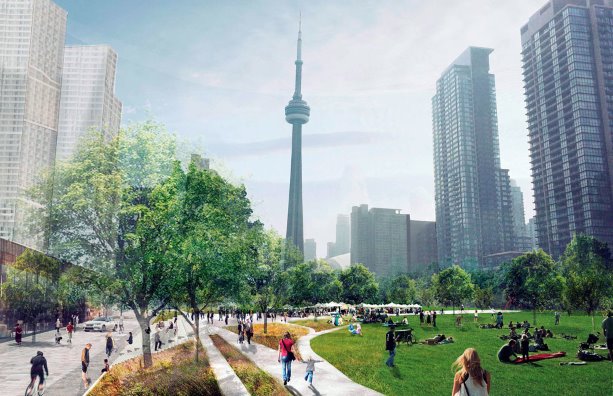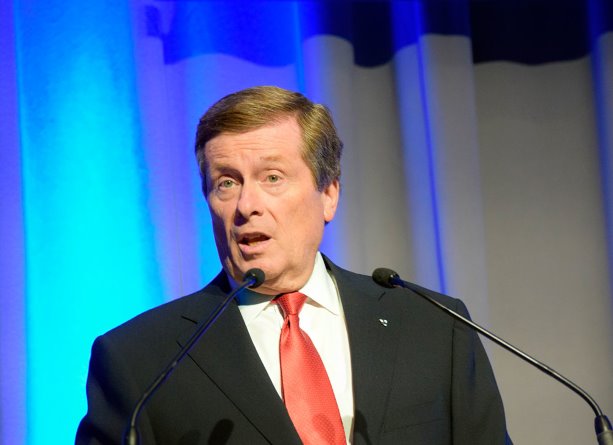A bullish Toronto Mayor John Tory, buoyed by initial city council planning support for the $1-billion rail-deck park plan for downtown Toronto, called on city builders assembled at the CityAge Build the Future conference last week to show support for further green space and infrastructure projects, including committing to revenue tools he said he will unveil later this fall.
Tory said the city has the support of federal and provincial leaders but other cities and regions must recognize that Toronto is the only global metropolis in the country and treat it as the "mature, sophisticated, crucially important engine of almost everything that is happening in the province of Ontario and in turn really in Canada."
"We are Canada’s champion here… it’s a fact," said Tory. "I am not saying everything is happening here and I am not saying it is all good, but I am saying that this is a dynamic region that is driving the country’s growth and success and that the other governments have to decide that they are going to nurture their champion so that we can become even bigger and better than we are."
Tory said he was willing to put his own political capital on the line by introducing new revenue tools and that "big thinking" was required to ensure major programs like his 15-year Smart Track transit initiative, his major parks plan and many other unfunded capital needs are costed and approved. "Either-or" approaches to infrastructure projects and proceeding one project at a time will hinder growth at this special "moment" Toronto is enjoying, when it is being recognized as one the world’s great cities to live and work in, he said.
"We have the transit deficit and the parks deficit, to name two, because we put off the decisions that were necessary," Tory told guests on day one of the CityAge conference held Oct. 6 and 7 in Toronto. "And so we have ended up with a $29-billion list of capital needs and projects and various other things because we want to have the gratification, as a politician of announcing a project that you have approved and are going ahead with without taking responsibility for how you’re going to pay for it.
"It will, to some extent, cause some political grief for myself… later this fall when I put forth some measures that I will recommend to the council to enhance our revenues so that we can afford most of the long-term things, transit and housing and so on, but these things simply have to be done to make sure that we don’t choke on the growth that surely is coming."
Tory said he is working regionally within the Greater Toronto Area on trade missions and with Kitchener-Waterloo to develop the innovation corridor that stretches from that region to Pearson airport. Expanded transit and other infrastructure programs that will support new affordable housing are needed to ensure the "talent" that is emerging from Ontario’s education system stays working in the region and to attract talent from abroad, he said.
"Berry (Vrbanovic, mayor of Kitchener and a panellist at CityAge) and I have spent quite a lot of time talking to people about the strength and the growtth of the technology sector along the Toronto-Waterloo corridor, and I can tell you that in all of those conversations, talent is the number one concern," said Tory.
He told the conference guests, "The most powerful calling card when we go to San Francisco and London and Hong Kong is our way of life, our values and the way we choose to live together."
The mayor referred to opponents of the proposed rail-deck park and said, "I just think that these are things that cause us to ask some serious questions. Are we going to get serious about investing in the future we want?
"You say, ‘do you want more transit’, and they say, ‘absolutely’. It is a dire need that we have. And then you say, ‘are you prepared to pay for it in any one of a hundred different ways?’ And of course the answer will be to all 100, ‘no we are not. Somebody else should pay.’
"To put it in plain language, are we prepared to pay for the things we know we need to build, in order to make sure we don’t choke on the growth?"










Recent Comments
comments for this post are closed